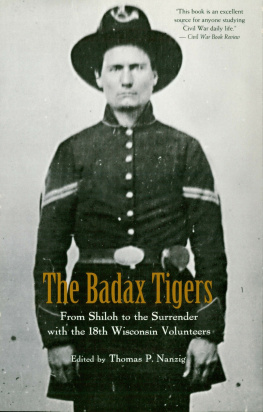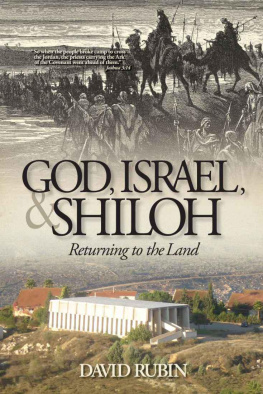With Some Personal Reminiscences.
Very interesting descriptions of the great battles of the late war, written by prominent generals, have been lately published and widely read. It seems to me, however, that it is time for the private soldier to be heard from.
Of course, his field of vision is much more limited than that of his general. On the other hand, it is of vital importance to the latter to gloss over his mistakes, and draw attention only to those things which will add to his reputation. The private soldier has no such feeling. It is only to the officers of high rank engaged that a battle can bring glory and renown. To the army of common soldiers, who do the actual fighting, and risk mutilation and death, there is no reward except the consciousness of duty bravely performed. This was peculiarly the case in the late war, when more than a million of young men, the flower of our country, left their workshops and farms, their schools and colleges, to endure the hardships of the march and the camp, to risk health, limb and life, that their country might live, expecting nothing, hoping nothing for themselves, but all for their fatherland.
The first really great battle of the war was that of Pittsburg Landing, or Shiloh, and I shall not only attempt to give a general account of the battle, but also describe it from the point of view of a man in the ranks.
In respect to the general features of this desperate struggle between our own countrymen, my statements are derived from many reports and accounts carefully collated, and from many conversations with soldiers engaged, both from the Union and Confederate armies.
Who of us, having reached middle life, does not recall the exultation and enthusiasm aroused by the news of the capture of Fort Donelson? What a thrill of pride and patriotism was felt through all the loyal North! The soldiers of the great Northwest had attacked a citadel of the rebellion, and captured it, with sixteen thousand of its defenders.
At this time the Third Iowa Infantry was strung along the North Missouri Railroad, guarding bridges and doing other police work. Company B, which had the honor of having on its muster roll private Olney, was stationed at that time in the little town of Sturgeon, Missouri, where our principal occupation was to keep from freezing. We had then spent eight months campaigning in that border Statethat is, if you call guarding railways and bridges, and attempting to overawe the disaffected, enlivened now and then by a brisk skirmish, campaigning. The Second Iowa had led the charge which captured the hostile breastworks at Donelson, and General Grant had telegraphed to General Halleck at St. Louis, who had repeated the message to the Governor of our State, that the Second Iowa was the bravest of the brave. The First Iowa had distinguished itself at Wilson's Creek, near Springfield, under General Lyon, while wewell, we hadn't done much of anything but to get a licking at Blue Mills. Therefore, when a message to move came, and we found ourselves on the way to join General Grant's army, we felt quite hilarious.
At St. Louis we were put on board the steamer "Iatan." Down the Mississippi, up the Ohio, up the Tennessee. As we proceeded up the Tennessee we were continually overtaking or being joined by other steamboats loaded with troops, until presently the river was alive with transports, carrying the army of the West right into the heart of the Confederacy. It was a beautiful and stirring sight; mild weather had set in (it was now the second week of March), the flotilla of steamboats, black with soldiers, bands playing, flags flying, all combined to arouse and interest. It was the "pomp and circumstance of glorious war."
Frequent stoppages were made, giving us a chance to run ashore. About the thirteenth we reached the landing-place, which soon afterwards became famous. The river was very high, and at first there seemed to be doubts as to where a landing should be effected, but in a few days the question was settled. Our boat was moored as near the shore as possible, and we joined the immense throng painfully making their way through the unfathomable mud to camps in the dense woods. The first things I observed after reaching the high bluff, were trees that had been torn and shattered by shells from our gunboats, which, it seems, had dislodged a company of Confederates, who had dug rifle-pits on the bluff, from whence they had fired on our steamboats.
We first camped on the bluff near the landing, but shortly moved back about a mile from the river, and camped on the edge of a small cotton field with dense forests all around. The Hamburg road ran past the left of our line, between us and the Forty-first Illinois; while on the right was a small ravine, which ran into a little creek, and that into Snake Creek.
The mudwell, it was indescribable. Though we were only a mile from our base of supplies, the greatest difficulty was experienced in getting camp equipage and provisions. We found that other divisions of the army had landed before us, moving farther out to the front towards Corinth, and had so cut up the roads that they were quagmires their whole length. Teams were stalled in the mud in every direction. The principal features of the landscape were trees, mud, wagons buried to the hub, and struggling, plunging mule teams. The shouts of teamsters and resounding whacks filled the air; and as to profanitywell, you could see the air about an enraged teamster turn blue as he exhorted his impenitent mules. And the rain! how it did come down! As I recall it, the spring of 1862 did not measure its rainfall in Western Tennessee by inches, but by feet.
But in time our camp was fairly established. Sibley tents were distributed, one for fourteen men. They protected us from the rain, but they had their drawbacks. Several of us were schoolmates from a Western college, and, of course, in some respects, constituted a little aristocracy. We had had a small tent to ourselves, and the socialistic grayback, as yet, had not crawled therein. Now, we were required to share our tent with others, and that might mean a great many. But when it came to a question of sleeping out in the cold rain, or camping down in a crowded tent in true democratic equality and taking the chances of immigration from our neighbors' clothing, we did not prefer the rain.
Of course, the private soldier has not much opportunity for exploration about his camp, however strong may be his passion in that direction. I did what I could, but my knowledge of the general encampment was much enlarged when, during the days following the battle, all discipline being relaxed, I tramped the field over in every direction and talked with the men of numerous regiments on their camp grounds. Further on, I shall refer to the position occupied by our army more at length, and shall only refer now to the general position of our encampment, as on a wooded plateau, accessible to attack only from the direction of Corinth, the river being in our rear, Snake Creek and Owl Creek on our right flank, and Lick Creek on our left. In places there were small fields with their adjuncts of deserted cabins. Our troops were camped wherever there was an opening in the woods or underbrush sufficiently large for a regiment. There seemed to be no order or system about the method of encampment, but each regiment occupied such suitable ground as presented itself in the neighborhood of the rest of the brigade; and the same was true of the brigades composing the divisions.











